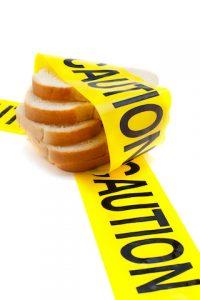Everything you need to know about the best PCOS diet

The vast majority of women with PCOS have insulin resistance – where their cells aren’t as responsive to insulin as they should be.
Insulin is a hormone produced in the pancreas and its job is to get glucose (sugar) out of your bloodstream and into your cells for energy production. When there’s too much around our cells it stimulates androgen production from your ovaries. Eating lots of sugary foods can also cause or worsen insulin resistance so unsurprisingly, changing our diet can have a huge impact on PCOS.
The trick is to eat a low-glycaemic diet
Low-glycaemic foods are those that cause a slow and steady release of glucose into the blood, triggering only a small amount of insulin release. High-glycaemic foods cause a big spike in blood glucose which causes a big spike in insulin-glucose, not what we want for PCOS.
So the major two foods to avoid are:
- sugar, including sugar from packaged foods, juices, soft drinks, hot drinks, sauces, syrups, honey and dried fruit – if it tastes sweet, it’s sugar
- refined carbohydrates, including cakes, pastries, cookies, bread, pasta and white rice
Healthy low-glycaemic foods include:
- proteins such as lean cuts of meat, fish, seafood, eggs, dairy, nuts, seeds, tempeh and tofu
- fibre-rich foods such as veggies, fruit, nuts, seeds, whole grains and legumes
- fats such as omega-3 fats from fish, walnuts, chia seeds and flaxseeds, polyunsaturated fats from olive oil, avocado, nuts and seeds, and saturated fat from coconut oil
These three categories should form the basis of your diet. Fill your shopping basket with them and learn to cook them in ways that appeal to you.
Some extra tips
Some women with PCOS don’t do very well on excess amounts of dairy as it can contain large amounts of insulin-like growth factor that has a similar action to insulin itself. If you aren’t sure use dairy as a condiment rather than the main feature, e.g. a few spoons of plain yoghurt with a curry or fruit and nuts, or goats feta sprinkle over a salad.
Fresh fruit contains enough fibre to slow the absorption of its sugar content but its best not to overdo fresh fruit either – 2-3 pieces per day is plenty
Eat a source of protein with every meal. Choose from the list above.
Choose lean cuts of meat to avoid the intake of excess saturated fats to maintain a healthy weight.
Don’t try and do it all overnight, unless you have the time and support. Radically changing your diet for good is hard and requires a time of learning, planning and extra effort. If you’re ready to go all in, do it but often the most sustainable changes come with implementing one thing at a time. You might try changing your breakfast first and then once that feels easy, move on to mastering new lunch ideas.
Ask your loved ones or housemates for their support. Ask them if they’d like to do low-glycaemic eating with you. We can all benefit from this way of eating and it brings more energy, clarity of mind and weight loss for most. If they don’t want to do it ask them not to offer you sugary foods and to limit them in the house.
If you love pasta, try having your favourite pasta sauce over steamed veggies or raw zucchini strips (use a julienne peeler to make these). Or try a whole grain spelt pasta mixed in with your veggies rather than a whole bowl of pasta alone.
What results will I see?
If you eating this way consistently you’ll find sugar cravings have stopped, energy has increased, excess weight dropped and PCOS symptoms diminished. But some of us won’t see quite the results we want or might struggle to stick to this at all. This is where herbal and nutritional medicine can really come into play.
When it comes to PCOS, happily, there are many herbs and nutrients to choose from. For example nutrients such as chromium, magnesium and myo-inositol can really quell those sugar cravings and get you on the right track. Herbs like cinnamon and gymnema can also be great for sugar cravings while licorice and peony help regulate periods and reduce androgens.
It’s important to remember therapeutic doses of herbs and nutrients are best delivered by a trained professional to ensure you are getting the right medicine for you, safely, at the right dose. Your particular hormonal profile will vary from someone else’s so in order to get the best results you need to get the right prescription for you as an individual.
So remember, diet is the most powerful thing you can do to heal PCOS. It can be hard to make changes but you don’t have to go it alone. With the right support you can be eating foods you enjoy whilst reducing acne, excess hair growth and irregular periods. And the best part is your body will thank you for it with more energy and a healthier weight. So get started today.
You may also be interested in
- Information about our Fertility Consultant, Nurse, Midwife, Lecturer & Author (28 yrs experience)
- What Causes PCOS?
- PCOS Diet
- 7 Ways to Boost Fertility Naturally
- Get Your Diet Right For Fertility
- Top 5 Tips for Avoiding Chemicals That Harm Fertility
- What’s your 5 Day Fertile Window?



